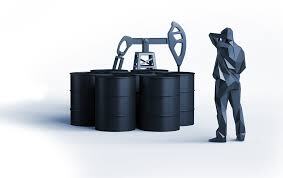
Energies
Trade on Precious Indices from any device
TRADE ENERGIES WITH Core Prime

What are energy CFDs?
Energy CFDs (Contracts for Difference) are financial derivatives that allow traders to speculate on the price movements of energy commodities, such as oil, natural gas, and electricity, without owning the physical assets. By trading energy CFDs, investors can profit from both rising and falling prices of these commodities.
Typical energy spreads
Typical energy spreads are the bid-ask price differences for energy CFDs, varying with market liquidity and volatility.
Typical energy spreads refer to the difference between the bid and ask prices for energy CFDs, such as crude oil, natural gas, and electricity. These spreads reflect the cost of entering and exiting trades in the energy markets and can vary depending on the asset’s liquidity and market conditions. Generally, more liquid energy commodities like crude oil and natural gas have narrower spreads, making trading more cost-effective.
Market volatility plays a significant role in determining spreads. During periods of high volatility, such as geopolitical events or major economic announcements, spreads may widen due to increased uncertainty and risk. Conversely, in stable market conditions with consistent trading volumes, spreads tend to be narrower, benefiting traders with lower transaction costs.
Understanding typical energy spreads is crucial for traders as it impacts overall trading costs and potential profitability. Narrow spreads reduce transaction costs and enhance trading efficiency, while wider spreads can increase costs and affect profit margins. Monitoring spreads and choosing the right trading times can help traders optimize their strategies and outcomes.
The size of the spread can also be influenced by market conditions and volatility. During periods of high volatility, such as major economic events or geopolitical tensions, spreads may widen due to increased uncertainty and risk. Conversely, in stable market conditions with high liquidity, spreads are typically tighter, making it more cost-effective for traders to enter and exit positions.
Understanding typical commodity spreads is crucial for traders as it affects transaction costs and potential profitability. Narrower spreads mean lower costs and better trading conditions, while wider spreads can increase expenses and impact overall returns. Therefore, monitoring spreads and choosing the right trading times and commodities can significantly enhance trading strategies and outcomes.
Popular Energies

Uranium
.

Coal
.

Natural Gas
.

Crude Oil
.
Open an Account Now
Our team of industry veterans has put together best in class trading environment with state of the art architecture, amazing trading terms and powerful partnership programs. Choose from over 100+ CFD instruments and start trading now!



